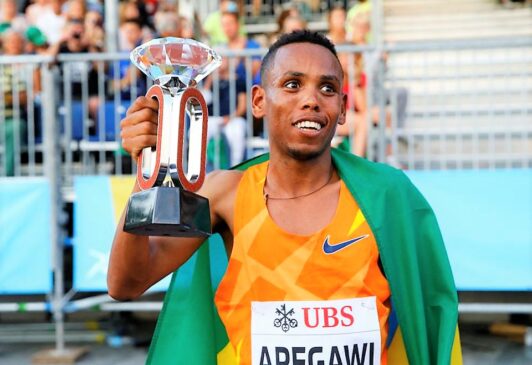Bud Greenspan (1926-2010): A friend of Ethiopian Athletes
 New York, USA – Olympic filmmaker Bud Greenspan, who wrote, produced and directed Olympic Games and feature films, including “The Ethiopians†and “Enduranceâ€Â, died here on Christmas day at the age of 84. He had Parkinson’s disease.
New York, USA – Olympic filmmaker Bud Greenspan, who wrote, produced and directed Olympic Games and feature films, including “The Ethiopians†and “Enduranceâ€Â, died here on Christmas day at the age of 84. He had Parkinson’s disease.
The filmmaker had great admiration for Ethiopian running legends like Abebe Bikila, Mamo Wolde, Miruts Yifter and Haile Gebreselassie to name a few. He also visited the country on a few occasions.
The Ethiopians (1971)
Under the watchful eye of Bud Greenspan comes this 1971 film that lasts 63 minutes. Marathon runners are a special sort of athlete. Even the most successful are rarely motivated by a desire for fame and wealth, but seem to have an almost mystical desire to transcend their own limitations. This documentary begins by discussing the first, fatal 26-mile-long run in ancient Greece, announcing the defeat at the battle of Marathon; the origin of all marathons. One highlight of the film is its use of early film footage of Olympic marathons from as far back as 1908. The second portion of the documentary highlights the careers of the Ethiopians who won three successive Olympic gold medals in the marathon run, the first in 1960, and focuses particularly on the triumphant career of Abebe Bikila.
This film about Ethiopian distance runner Haile Gebrselassie, who won gold at the 1996 Atlanta Olympics and is considered one of the greatest runners of all time, is a dramatization that often appears to be a documentary. Beautifully photographed, the footage shot in Haile’s native land is often spectacular enough to make you think you’re watching a National Geographic special.
Haile’s young life, such as a scene when his family is listening to a news report about warfare in Ethiopia and a report comes on about the 1980 Olympics, is portrayed with apparent accuracy, but not without a great deal of drama. There are many scenes of Haile running, past wildlife in the countryside or through crowded city slums, and while this gives what must be an accurate idea of him developing his athletic regimen, this is also not terribly dramatic on camera.
Eventually, Haile is shown racing in Atlanta, valiantly overtaking all competition; his family back in Ethiopia is shown gathered around a television set, jubilantly watching his triumph. And while there’s no denying that this is a touching and inspiring human story, the slow pace of the presentation tends to work against the inherent drama.
For more on the works of Bud Greenspan, please visit RunningMovies.com.




